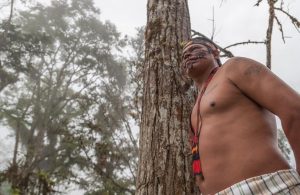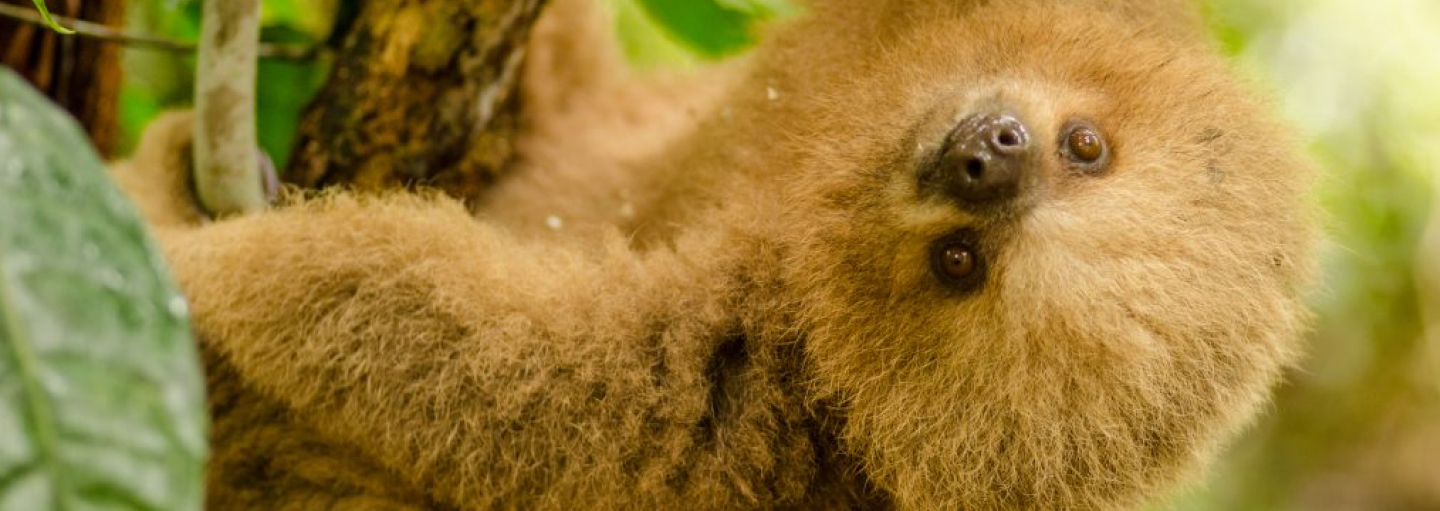Rainforest Conservation in Ecuador through the Eyes of an Indigenous Achuar
04/14/2015
 As official partners of SocioBosque, we have assisted 28 communities in entering their lands in SocioBosque, 16 of which are indigenous. These efforts have protected more than 500,000 acres of biodiverse forests and numerous threatened species, as well as generated over $1 million in funds.
As official partners of SocioBosque, we have assisted 28 communities in entering their lands in SocioBosque, 16 of which are indigenous. These efforts have protected more than 500,000 acres of biodiverse forests and numerous threatened species, as well as generated over $1 million in funds.
Home to some of the most pristine rainforests on the planet, Ecuador is on the frontlines of conservation. Since 2008, Nature & Culture has been working with local communities to protect their land through the government’s SocioBosque program, an innovative “payment for conservation” program that combines forest conservation with enhancing social welfare. In return for their protection, communities obtain economic incentives from the national government in the form of annual funds toward health care, education, clean energy and infrastructure.
 In October 2014, we played a pivotal role in helping the indigenous Achuar join SocioBosque for the first time. Clemente Santi, an Achuar member of the Capahuari community, spoke to us about the changes they are seeing. “We care for our forests. Before we were in the habit of knocking down the trees, but now we want to save our forest.”
In October 2014, we played a pivotal role in helping the indigenous Achuar join SocioBosque for the first time. Clemente Santi, an Achuar member of the Capahuari community, spoke to us about the changes they are seeing. “We care for our forests. Before we were in the habit of knocking down the trees, but now we want to save our forest.”
Since he was a child, Clemente has seen troubling changes in his forest – a trend of deforestation that is now being reversed by SocioBosque. “People used to destroy our forest for pastures. Now, we are planting trees near our homes. We are giving our children something that they will take care of, that will be planted for their future.”
With an ancient culture deeply rooted in the forest, the Achuar have many traditions that speak to their spiritual relationship with nature. One example is the rituals they perform at waterfalls, which the Achuar consider sacred. Their mists are viewed as physical manifestations of arutam, a supernatural force or dream energy that provides strength to the individuals who receive it. Many of these dream-seeking quests involve taking floripondio, a natural hallucinogen.
 Clemente also told of the “hora de wayusa”, an important communal time in the pre-dawn when families gather to tell and interpret dreams while drinking wayusa, a mild stimulant grown in many family gardens. “At dawn in my forest, I see birds, toucans singing beautifully and all the other animals, and moreover, I see what I love in my forest where there are waterfalls and other beautiful things.”
Clemente also told of the “hora de wayusa”, an important communal time in the pre-dawn when families gather to tell and interpret dreams while drinking wayusa, a mild stimulant grown in many family gardens. “At dawn in my forest, I see birds, toucans singing beautifully and all the other animals, and moreover, I see what I love in my forest where there are waterfalls and other beautiful things.”
When asked what impact SocioBosque is going to have on the Capahuari community, Clemente said, “With regards to impact, yes, now it will change, there will be a lot that our members will see. They will live a lot better now with the investments from SocioBosque. There will be work for the children, for the young people. There will be a lot of things that will make a change.”
Our local team is continuing their work with the Achuar and other indigenous groups including the Shuar, Zápara, Kiwcha and Andwa in the provinces of Pastaza and Morona Santiago, home to millions of acres of pristine Amazon rainforest that one of our staff calls an “alfombra verde con rios” – a carpet of green with rivers.


